Financial, Economic and Business History
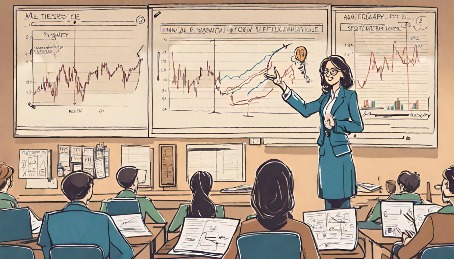
This summer school will offer you the opportunity to develop core research skills, ranging from presenting your research project, receiving feedback, providing commentary on the work of your peers, and moderating others’ sessions. It is organised by the Faculty of Economics and Business (FEB) of the University of Groningen (UG) and supported by the European Historical Economics Society (EHES). Students will be accommodated in the city centre of Groningen.
You will receive feedback on your presentation from leading scholars in the field. Additionally, these scholars will deliver keynote speeches on the latest developments and trends in financial, economic and business history, shedding light on the digitization of historical data and innovative research methodologies. Moreover, you will receive guidance on publishing your work from (former) journal editors and gain valuable insights into academic career prospects. In celebration of the third female (and first female in economic history) Nobel Memorial Prize winner in Economic Sciences, Claudia Goldin, we will pay particular attention to women in academia.
|
Dates
|
24 - 28 June 2024
|
|
Location
|
Groningen, the Netherlands
|
|
Level
|
PhD |
|
Fees
|
€ 150 |
|
Academic coordinators
|
Dr. Amaury de Vicq & Thalassa de Waal |
|
Contact |
feb.his.summerschool@rug.nl Dr. Amaury de Vicq & Thalassa de Waal
|
This course is designed for PhD-students and early Postdocs in Financial, Economic or Business History.
It is expected that the participants have a sufficient command of the English language to actively participate in the discussions and to present their own work in English.
- How to build and manage large datasets?
- How to publish your work?
- How to develop a career in academia?
- How to teach Financial, Economic and Business History?
The first three are lectures, while the latter one is an interactive workshop.
After this course you will be able to:
1. Present your academic work to a an audience of peers and experts;
2. Critically assess work of your peers and provide constructive feedback;
3. Moderate an academic discussion;
4. Acquire the latest insights into financial, economic and business history research
Workload
-
Preparation: 72 hours
-
Lectures: 12 hours
-
Presentation and feedback sessions: 12 hours
Upon successful completion of the programme, the Summer School offers a Certificate of Attendance that mentions the workload of 96 hours (28 hours corresponds to 1 ECTS). Students can apply for recognition of these credits to the relevant authorities in their home institutions, therefore the final decision on awarding credits is at the discretion of their home institutions. We will be happy to provide any necessary information that might be requested in addition to the certificate of attendance.
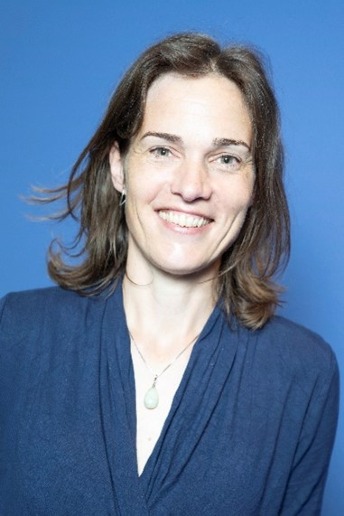
Jutta Bolt
Jutta Bolt is Aletta Jacobs Professor in Global Economic History at the University of Groningen and holds an associate professor position at Lund University. Her research focusses on understanding long-term comparative economic development patterns, with a special focus on Africa. Current research projects include understanding long-term health inequalities in Sub-Saharan Africa (Wallenberg Academy fellowship), understanding the historical origins of present-day income inequality in Africa (AFLIT project) and studying the historical development of local and central government capacity in Africa. She is also the academic coordinator and one of the developers of the Maddison Project database which provides long run income estimates for a global set of countries.

Chris Colvin
Chris Colvin (PhD, LSE) is Reader in Economic History at Queen's University Belfast, where he is also Co-Director of the university's Centre for Economic History. He combines economics and history to better understand the performance of firms, industries, economies and societies. He has published on financial crises, cooperative banking, monetary policy, historical demography, and historical pandemics. He is currently researching the economic legacy of the Great Irish Famine, the causes of the decline of the Irish language, and the impact of past patent system reforms in the UK and the Netherlands. He is also interested in pedagogy in economic history, including devising strategies to re-integrate economic history into economics undergraduate teaching, and delivering applied history continuing professional development programmes to government policymakers. He serves as Associate Director for Outreach and Engagement at the Centre for Economics, Policy and History, a Government of Ireland-funded collaboration between Queen's and Trinity College Dublin.

Abe de Jong
Abe de Jong is a professor of finance at the University of Groningen (Netherlands) and Monash University (Australia). His research and teaching interests are in the area of financial history, business history and corporate finance. He published research on the Dutch East India Company in the early 17th century and on finance and governance in the Netherlands in the 20th century. He currently works on the NEDHISFIRM project in Groningen, which aims to digitize information about the Amsterdam Stock Exchange and listed corporations from 1796 to 1980. De Jong holds a PhD from Tilburg University (1999) and previously served as co-editor of Business History.
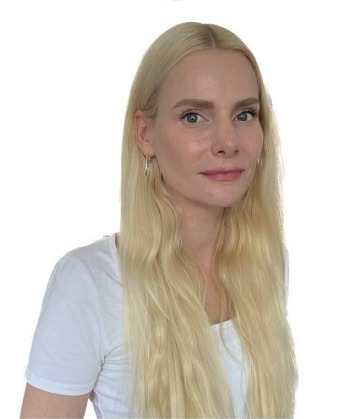
Alexandra de Pleijt
Alexandra de Pleijt is an Assistant Professor of Economic History at Wageningen University. Her research focuses on the fundamental historical question of what triggers radical economic transitions, today and in the past. She is interested in how education, skill formation and knowledge production feeds into processes of technological and economic change, and how these processes, in turn, affect socio-economic outcomes for societies as a whole as well as specific social groups (e.g. women, workers and regional populations). Her research is interdisciplinary, combining economic theory, computational tools and methods with historical research methods and in-depth explorations of archival material. She has published in leading field journals like the Economic History Review and The Journal of Economic History. Additionally, her work has been published in high-ranked journals in Economics and Development studies, such as the Journal of the European Economic Association and World Development.
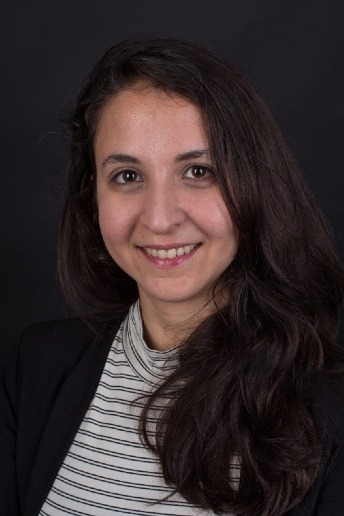
Selin Dilli
Selin Dilli is Assistant Professor of Economic History and a board member of the interdisciplinary Philosophy, Politics and Economics (PPE) bachelor. Her research focuses on the global economic history of institutions and their consequences for gender (in)equality, (female) entrepreneurship and long-term development since 1900 to today. Being trained as a sociologist and economic historian, she uses mixed methods to analyze large historical datasets and archival material and apply theories from sociology, economics and political science disciplines. Her PhD research gathered new data to explain the (non-linear) changes towards gender equality in health, politics, economics, and households globally since 1900. Her postdoctoral research in the Horizon 2020 project ‘Financial and Institutional Reforms for an Entrepreneurial Society in Europe’ (FIRES) offered a distinct approach by demonstrating how the complementarity of institutions, instead of single ones, explains the diversity in (female) entrepreneurship today. Her current research is on the historical evolution of female entrepreneurship between 1900-2020, which is funded by a NWO-Veni grant.

Rui Pedro Esteves
Rui Pedro Esteves is a Professor at the Graduate Institute of International and Development Studies in Geneva. Rui Esteves previously held academic positions at the University of Oxford and Simon Fraser University. The focus of his research lies in financial history, particularly in topics of international finance, institutional economics, and public finance in a historical perspective. His work speaks to the present-day process of international economic integration by studying the transformations brought about by the “first wave of globalization” before World War I. He is equally interested in questions of comparative corruption and rent-seeking and in the impact of social networks in history.
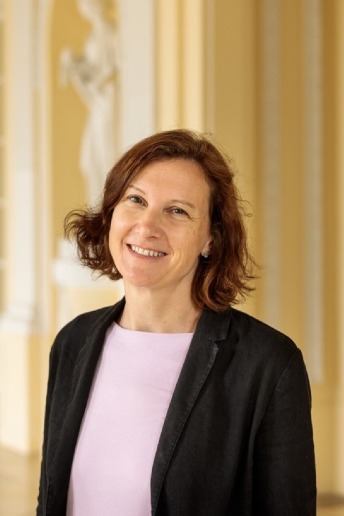
Sibylle Lehmann-Hasemeyer
Sibylle Lehmann-Hasemeyer is a Professor for Economic and Social History at the Economics Department of the University of Hohenheim. After studies in Marburg, Berlin and Lausanne, she graduated from Trinity College Dublin in 2008. Before moving to Stuttgart in 2012, she was senior research fellow at the Max Planck Institute for Research on Collective goods in Bonn.
Lehmann-Hasemeyer is a Research Affiliate in the Economic History Programme at the CEPR, President of the European Historical Economics Society, Chair of the field commitee Economic History of the Verein für Socialpolitik, Member of the Directorate of the Eugen-Gutmann-Gesellschaft and she is currently serving on the DFG Review Board Economics.
Lehmann-Hasemeyer is an empirical economist and quantitative economic historian. Her research spans economic geography and financial history. The results of her work were published, among others, in lead general interest journals such as the American Economic Review, the Review of Economics and Statistics and in lead field journals such as the Journal of Economic History and the Economic History Review.
In 2018, her paper “The Berlin Stock Exchange in Imperial Germany – a Market for New Technology?”(joint with Jochen Streb), won the Schmölders prize of the Verein für Socialpolitik. In 2021, together with Nadja Dwenger, she was awarded a prize for excellent research by the Gips Schüle Stiftung and the University of Hohenheim.
Currently, she is working on the economic relevance of savings banks for entrepreneurship, the determinants of savings behaviour, Initial public offerings in the very long run and social mobility and inequality in the German industrial sector.
To apply, kindly fill out the online application form. Please note that you will be asked to upload the following documents:
-
One-page CV
-
Two-page summary of their research project
-
(If available) a sample of work in progress, such as a draft chapter or a working paper
The deadline for application is 15 March 2024. Selected applicants will be informed by 12 April 2024.
| Last modified: | 18 January 2024 12.31 p.m. |
